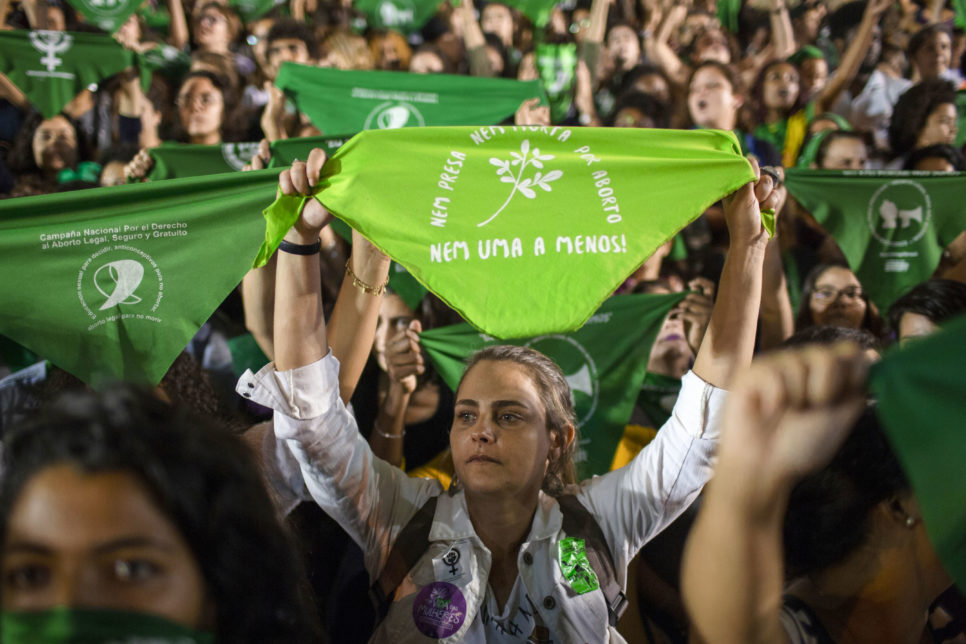
Residents from the southside of the city of São Paulo take part in 18th March for Life and for Peace. Photo: Marcelo Camargo/ABr
Unlike what one might imagine, the social isolation imposed by the Covid-19 pandemic caused killings by the police to surge in São Paulo. The state recorded the worst figures in its history in the first quarter, with 514 people killed at the hands of the public authorities. The data reinforce the urgency and importance of a Public Civil Action filed by the São Paulo Public Prosecutor’s Office in May 2019.
The lawsuit calls for several measures to tackle police lethality, among them the declaration of an “unconstitutional state of affairs” in São Paulo’s public security and the recognition of its particularly harmful impact on black youth.
In August 2020, a group of 12 organizations, including Conectas, submitted an amicus curiae brief reinforcing the data and the arguments raised in the case by the State Public Prosecutor’s Office. The document explains that police violence in the country occurs in an “informal” way (summary executions), but also in a “legalized” way, hidden in police reports described as “confrontations” or “resistance”.
Read more
The organizations also said that this type of violence is directly associated with institutional racism – which is clear from the profile of the main victims: young, black men. This is a direct violation of the Racial Equality Act, which places on the State the responsibility to curb police violence that has historically most affected the black population.
The current state of affairs in public security also violates fundamental rights protected by the Constitution and by various international treaties ratified by Brazil, such as the right to life, to personal integrity, to personal liberty and security and to judicial protection; and also principles related to public administration, such as transparency, morality and efficiency. It also tramples on the principle of legality, the cornerstone of the rule of law, which establishes that government can only do what the law authorizes (anything that exceeds this limit constitutes abuse).
The other part of the problem presented by the organizations is the inaction and leniency of the State when it comes to cases of violence, since few result in officers or their superiors being held accountable, preventing the victims and their families from having access to a fair legal process. Finally, the amicus brief also addressed the effects of police lethality on children’s rights, which should have absolute priority when drafting public policies and standards in Brazil. The document points out that the police are primarily responsible for intentional deaths of children and adolescents in São Paulo.
Various studies illustrate that the Brazilian police are one of the most lethal in the world. Between 2009 and 2016, nearly 22,000 people were killed by security forces in Brazil, more than the total number of people killed in 30 years by the US police, between 1983 and 2012. In 2018 alone, the Brazilian police killed 6,220 people, or approximately 17 people per day.
Technical information
- Case: ADI 6286
- Court: 4th Public Finance Court of the São Paulo State Court
- Status: Awaiting trial court sentence; request for amicus curiae status still under analysis
- Procedure:
- 5/21/19: Initial petition
- 8/24/20: Request for admission of the organizations as amicus curiae







